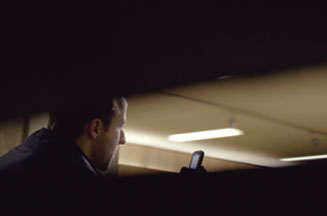
The electronics market has lost its spark, with Hitachi, Panasonic, Toshiba and Sony all announcing job cuts in response to declining sales. Hitachi, which cemented its UK presence in the 80s, quickly established a strong brand profile alongside its rival Japanese brands.
Its advertising, under the strapline 'Better buy Hitachi', promoted its products' ease of use, with ads in which power-dressing couples set their video-recorders before rushing out to dine.
The company was not afraid to tread fresh promotional ground. In 1979, it was the first sponsor to have its name printed on a football team's shirts, under a deal with Liverpool FC. As Hitachi diversified away from the consumer market, it became a less familiar presence on TV screens and in UK households.
But earlier this year, it returned to brand promotion with a TV campaign pushing its environmental credentials. Under the strapline 'All around you', the ads depicted urban consumers surrounded by trains, computers and mobile phones.
Big losses are expected for the current financial year, however, and Hitachi admits that revenue growth is 'unlikely for the foreseeable future'. It is also restructuring by turning its consumer and automotive arms into separately run companies.
Dominic Chambers European marketing director, LG Electronics
Hitachi is one of the giants of post-war industrial Japan. It is a huge business that emerged onto the UK consumer electronics scene in the 80s. I can remember it being up there with Sony and Panasonic as one of the new Japanese brands to be considered in any electronics purchase. It had a strong reputation for innovation and quality and held a big share of the market.
Although Hitachi is still active in many product sectors, its brand presence has been absent and it trades on a residual awareness and authenticity. The company has been using the 'Inspire the next' tagline for some time, but the recent TV commercial is far from inspirational, with a real dirge of a soundtrack and a lot of dark shots of an urban environment that make me feel quite depressed.
The other challenge for Hitachi is that it is now primarily an industrial business - it is supplying intercity trains to the UK - and this makes it hard to foster a premium and differentiated brand in the consumer market. It still has the ability to revive, although it would have to work hard to reach the under-30s.
Remedy
- If Hitachi wants to compete in the consumer electronics market, it needs to invest in a couple of innovative flagship products that would give the master brand fresh relevance and rebuild on its legacy.
- It would need to review its wide portfolio of consumer products and decide which sectors it is serious about; what is the point of a 1% market share in anything?
- It also needs to be more active in PR, generating consistent messages that are relevant to consumers, rather than corporate messages.
Nick Suckley managing partner, agenda21
Hitachi is one of those brands that hasn't made it into the 'noughties'; one we have all heard of, but are not really sure what it stands for.
A bit like the Ford Cortina - fondly remembered, but nobody really cares any more. In describing its green credentials, the homepage of Hitachi's website announces how the brand is 'Helping To Preserve The Planet (In A Quiet Way)'.
There's no doubt Hitachi is a great engineering company with heritage, but it's rapidly becoming a non-brand. I don't remember the last time I saw a Hitachi press ad, online ad or piece of direct mail.
Also, when I bought a new TV a few months ago I didn't even consider Hitachi. With the Korean brands such as LG and Samsung aggressively improving their clout, a continued lack of distinction is a dangerous game for Hitachi to play. Its 'Inspire the next' tagline isn't credible from a communication point of view.
Remedy
- Manufacturers naturally take a product-centric view of the world. Hitachi needs to take a consumer-centric view of how its products can enhance people's lives if it is to compete with Korean rivals.
- The retail channel is struggling in the digital age and the market is becoming increasingly commoditised. If nobody is looking for Hitachi, it will end up competing on price alone. Focus on stimulating desire for its products.
- Understand how much communications have moved on in recent years. There's a generation of consumers unaware of what Hitachi stands for, and they're all over the web. No consumer electronics company can claim ownership of this space.

